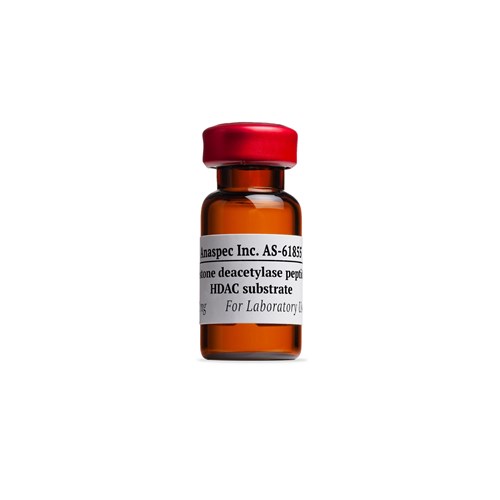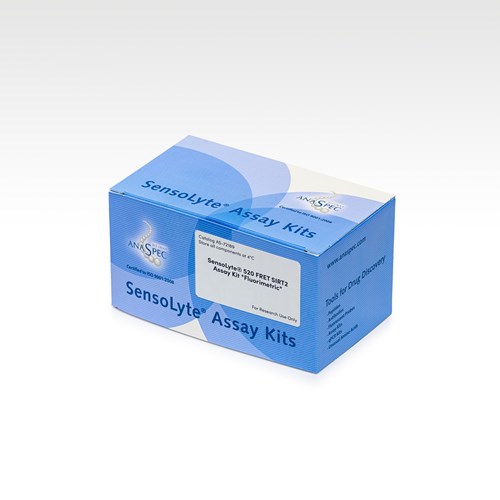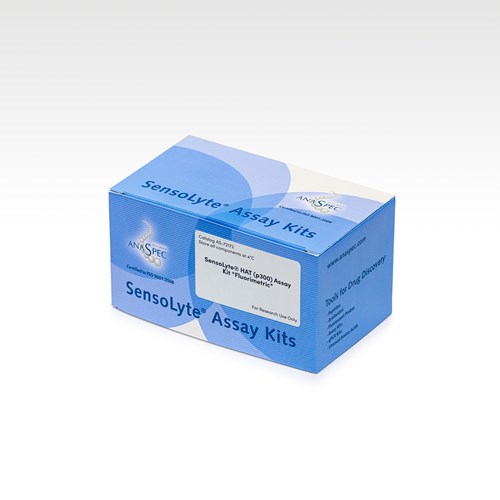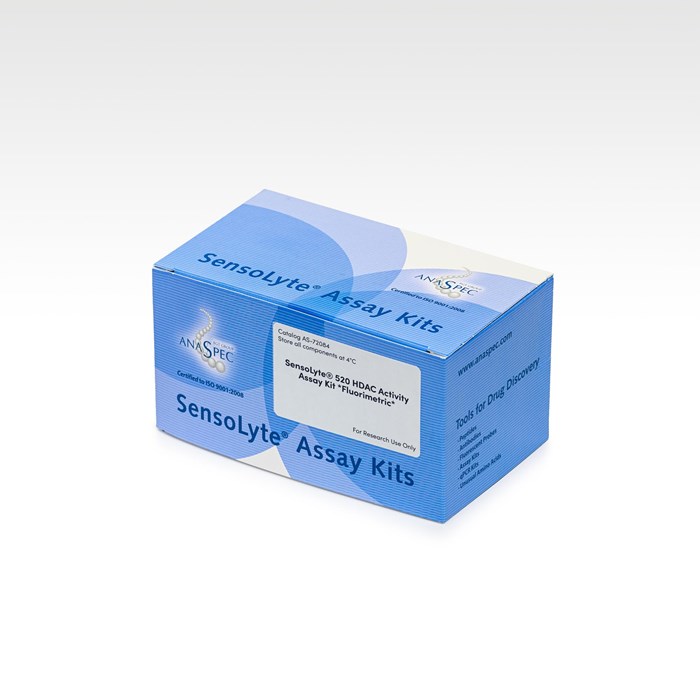SensoLyte® 520 HDAC Activity Assay Kit Fluorimetric - 1 kit
- Cat.Number : AS-72084
- Manufacturer Ref. :
-
Availability :
In stock
- Shipping conditions : Ice fees will apply
Histone deacetylase (HDAC) enzymes modulate gene expression through the deacetylation of lysine residues on histone proteins and act as transcriptional repressors of genes. Based on their role in cell cycling, apoptosis and differentiation, HDACs have been chosen as therapeutic targets for the treatment of cancer and neurodegenerative diseases.
The SensoLyte® 520 HDAC Activity Assay Kit provides a convenient, two-step homogeneous procedure for measuring HDAC activity using a fluorogenic substrate. In the first step, an acetylated substrate is incubated with HDAC containing samples. Deacetylation of substrate sensitizes it, so that, in the second step mixing with the HDAC developer generates a fluorophore, which can then be detected at Ex/Em= 490 nm/520 nm. The substrate included in the kit is cell-permeable, and the assay can be used to measure HDAC activity directly in cell culture in a 96-well plate without a time-consuming cell extraction step. This kit also can be used for high throughput screening of HDAC inhibitors using extracts or purified enzymes. The long wavelength fluorescence of HDAC 520 substrate is less interfered by the autofluorescence of cell components and test compounds.
Specifications
| Packaging | |
| Kits components |
|
|---|---|
| Properties | |
| Absorbance (nm) |
|
| Emission (nm) |
|
| Storage & stability | |
| Storage Conditions |
|
| Activity | |
| Application | |
| Biomarker Target | |
| Detection Method | |
| Detection Limit |
|
| Research Area | |
| Sub-category Research Area | |
| Usage |
|
Downloads
You may also be interested in the following product(s)



Citations
Histone Deacetylase Inhibitors Prolong Cardiac Repolarization through Transcriptional Mechanisms.
Toxicol Sci. . 2016 Jun 02 ; 153(1) 39 | DOI : 10.1093/toxsci/kfw104
- S. Spence
Transforming growth factor β1 inhibits bone morphogenic protein (BMP)-2 and BMP-7 signaling via upregulation of Ski-related novel protein N (SnoN): possible mechanism for the failure of BMP therapy?
BMC Medicine . 2012 Sep 07 ; 6797(38) 2 | DOI : https://doi.org/10.1186/1741-7015-10-101
- S. Ehnert
A novel isoform of human LZIP negatively regulates the transactivation of the glucocorticoid receptor
Mol Endocrinol. . 2009 Sep 24 ; 23(11) 1746 | DOI : 10.1210/me.2009-0009
- H. Kang
A new synthetic HDAC inhibitor, MHY218, induces apoptosis or autophagy-related cell death in tamoxifen-resistant MCF-7 breast cancer cells
Invest New Drugs . 2011 Oct 08 ; 30(5) 1887 | DOI : 10.1007/s10637-011-9752-z
- J.H. Park
Anticancer effects of the HDAC inhibitor, 3β,6β‑dihydroxyurs‑12‑en‑27‑oic acid, in MCF‑7 breast cancer cells via the inhibition of Akt/mTOR pathways.
Oncol. Rep. . 2023 Feb 01 ; 49(2) 43 | DOI : https://doi.org/10.3892/or.2023.8480
- JS. Lim
- et al

